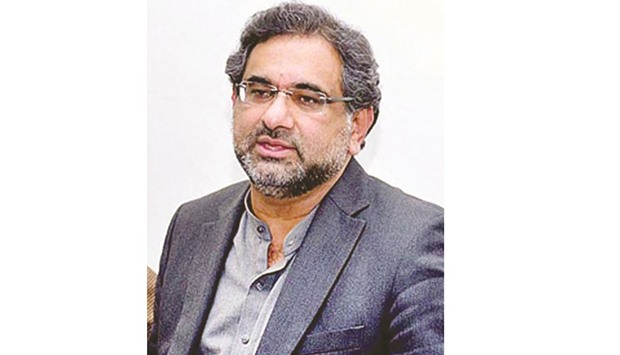Pakistan is seeking to build two new oil refineries in a bid to eliminate refined fuel imports within seven years and meet surging demand at home.
The refineries, with a planned combined capacity of 24mn tonnes a year, are going to be built in the provinces of southwestern Balochistan and central Punjab, according to Petroleum Minister Shahid Khaqan Abbasi.
“We should have no imports in next five to seven years, we should be just importing crude,” Abbasi said in an interview on Tuesday in Islamabad, the capital. “We have demand and it’s going up.”
South Asia’s second-largest economy purchases about 15mn tonnes of petroleum products each year, with the nation’s gasoline consumption increasing by 23% annually in the past five years, according to Abbasi. Pakistan spent $7.6bn on fuel imports in the fiscal year through July 1, the equivalent of about a third of its foreign reserves.
Pakistan’s demand for fuel is rising as Prime Minister Nawaz Sharif seeks to boost economic growth to an annual 7% within the next two years on the back of Chinese investment announced last year of about $46bn. The nation of more than 200mn people has seen its economy expand from an average 3% to around 5% since Sharif started reforms after taking an International Monetary Fund loan of $6.6bn to avert a balance of payments crisis three years ago.
While Pakistan already has five refineries, they aren’t working to full capacity as they are ageing and cannot break down crude oil efficiently, he said. The country’s diesel consumption has also increased by as much as 8% annually since 2011, Abbasi said.
In insurgency hit southwestern Balochistan, the state-owned Pak-Arab Refinery Company has been tasked to revive a proposal for a coastal refinery in Khalifa Point, with the aim to get it started in three to five years, Abbasi said. The government, which holds a 60% stake in Pak-Arab in a joint venture with Abu Dhabi, will use its dividend as its investment share in $5bn project, he said.
For the second refinery in Punjab, the government is looking to lure Chinese, Middle Eastern or European investment to finance the plant, with a proposed site in the province’s Gujrat district, Abbasi said. The refinery plans would also help the country, that’s trying to meet revenue targets tied to the IMF loan, save on foreign exchange. In the meantime, energy shortfalls are costing Pakistan as much as 2% of gross domestic product each year, Planning Minister Ahsan Iqbal said in an interview in Islamabad on Monday. Within two years that deficit should be addressed through ramped-up investment, he said.
The gap has compelled Sharif’s administration to buy 4.5mn tonnes liquefied gas to feed its industries and power plants. The government is also is in talks with several countries including Russia, Malaysia and Gulf states to procure the same amount of chilled gas this year, Abbasi said.

Abbasi: For the second refinery in Punjab, the government is looking to lure Chinese, Middle Eastern or European investment to finance the plant.
